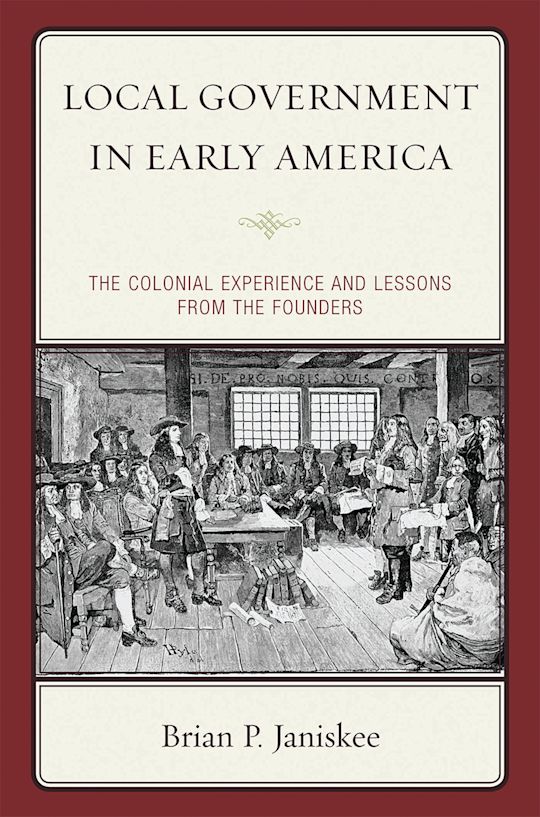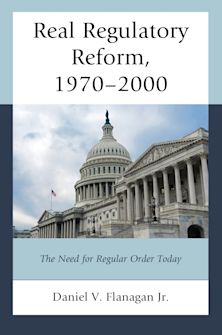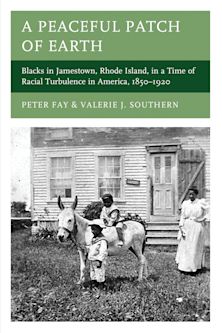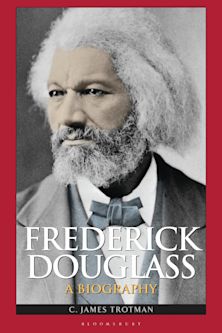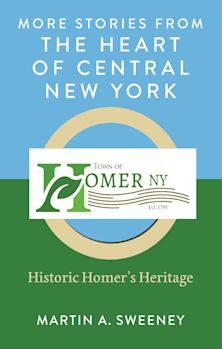- Home
- ACADEMIC
- History
- United States History
- Local Government in Early America
Local Government in Early America
The Colonial Experience and Lessons from the Founders
Local Government in Early America
The Colonial Experience and Lessons from the Founders
For information on how we process your data, read our Privacy Policy
Thank you. We will email you when this book is available to order
You must sign in to add this item to your wishlist. Please sign in or create an account
Description
Local Government in Early America is a concise and thought-provoking exploration of the American desire for political participation, most notably in the "town hall meeting." A product of early New England democracy, this form of direct local participation remains one of the most celebrated, yet feared, institutions in our political life. Depending upon one's political perspective on the issue at hand, a lively town hall meeting can be the glorious epitome of grassroots activism or the wretched embodiment of reactionary zeal. For all of the media attention devoted to the conservative revolt against health care reform at town hall meetings across the country, the political right is late to game on local activism. From resolutions opposed to the Patriot Act or the declaration of nuclear free zones in cities, the political left has used the rhetorical power of the local political pulpit to great effect for many years. All of this is possible because of the manner in which local governments were constructed during the colonial period. Author Brian Janiskee details the origins of our local system by examining key characteristics of local colonial political life, including what key founders like John Adams and Thomas Jefferson had to say about the role of our villages, towns, and cities in our complex system of government. Through this timely analysis of our political heritage, Janiskee may cause observers to reevaluate the phrase "all politics is local." Indeed it may be the case that "all local politics is national."
Table of Contents
Chapter 2 Preface
Chapter 3 Intoduction
Chapter 4 Chapter 1: The Colonies of New England
Chapter 5 Chapter 2: The Middle and Southern Colonies
Chapter 6 Chapter 3: The Founders on Local Government
Chapter 7 Chapter 4: All Local Politics is National
Chapter 8 Appendix
Chapter 9 Bibliography
Chapter 10 About the Author
Chapter 11 About the Claremont Institute
Chapter 12 Index
Product details
| Published | Mar 16 2010 |
|---|---|
| Format | Ebook (Epub & Mobi) |
| Edition | 1st |
| Extent | 200 |
| ISBN | 9781442201354 |
| Imprint | Rowman & Littlefield |
| Publisher | Bloomsbury Publishing |
About the contributors
Reviews
-
An examination of local government in colonial America is the occasion for Janiskee (California State Univ., San Bernardino) to voice an 'originalist' understanding of the purposes of local governments in a larger polity whose legitimacy rests on natural rights. He describes and contrasts these governments in early America, and then turns to the views on local government found in the writings of Thomas Jefferson and John Adams. Janiskee concludes that Jefferson and Adams agreed that these immediate and direct modes of government should be seen as 'part of a seamless fabric that would keep the [larger] republic. . .close to its animating principles.' Neither local autonomy nor the civic virtues generated by public deliberation and administration stand foremost; rather, the Revolution proved that the townships are the first line in the defense against foreign tyranny and serve, after the Revolution, as the last line against domestic tyranny. So should they be seen today. A useful contrast is J. S. Maloy, The Colonial American Origins of Modern Democratic Thought (CH, Jul'09, 46-6466), a much richer historical and theoretical analysis, where institutional forms of accountability and trust serve as the foundation of American democratic values. Recommended.
Choice Reviews
-
An examination of local government in colonial America is the occasion for Janiskee (California State Univ., San Bernardino) to voice an 'originalist' understanding of the purposes of local governments in a larger polity whose legitimacy rests on naturalrights. He describes and contrasts these governments in early America, and then turns to the views on local government found in the writings of Thomas Jefferson and John Adams. Janiskee concludes that Jefferson and Adams agreed that these immediate and direct modes of government should be seen as 'part of a seamless fabric that would keep the [larger] republic. . .close to its animating principles.' Neither local autonomy nor the civic virtues generated by public deliberation and administration stand foremost; rather, the Revolution proved that the townships are the first line in the defense against foreign tyranny and serve, after the Revolution, as the last line against domestic tyranny. So should they be seen today. A useful contrast is J. S. Maloy, The Colonial American Origins of Modern Democratic Thought (CH, Jul'09, 46-6466), a much richer historical and theoretical analysis, where institutional forms of accountability and trust serve as the foundation of American democratic values. Recommended.
Choice Reviews









